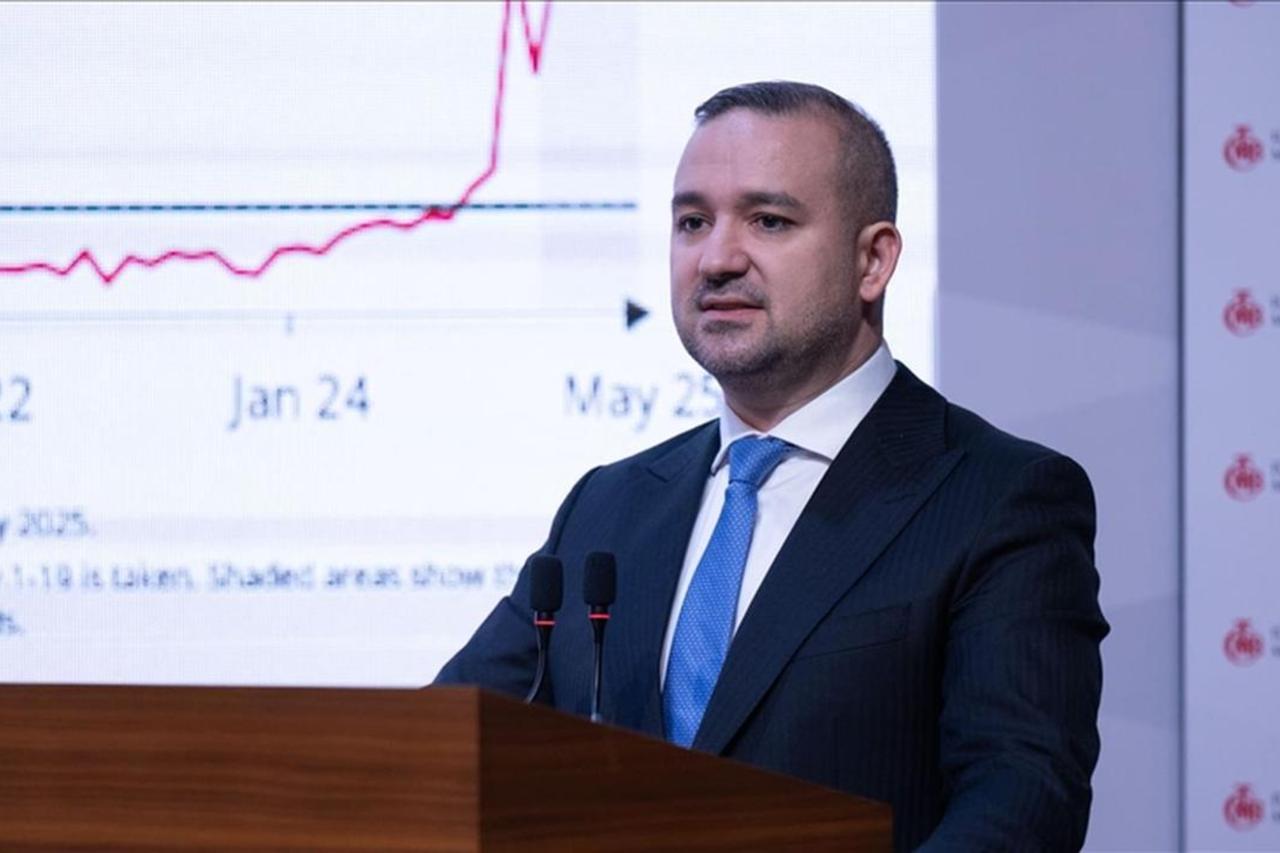
Türkiye’s central bank increased its year-end inflation forecast to a range of 31%-33%, up from the previous 25%-29%, while maintaining the interim target for 2025 at 24%, Governor Fatih Karahan announced during the final inflation report presentation of the year.
Karahan stated that the 2026 interim target remains unchanged at 16%, with the forecast range kept steady at 13%-19%.
The central bank began separating its inflation forecast and year-end inflation targets starting with its third inflation report of the year. For 2025, the interim target was set at 24%, while targets for 2026 and 2027 were set at 16% and 9%, respectively.
It had previously announced that these interim targets would not be revised unless extraordinary developments occurred, with changes reflected only in forecasts.
“We estimate that inflation will end 2025 in the range of 25%-29% and 2026 in the range of 13%-19%,” Karahan said, emphasizing that the Bank’s tight monetary policy continues to produce results gradually.
Karahan noted that although the disinflation process that began in June 2024 has recently slowed, upcoming policy steps will ensure inflation moves in line with interim targets.
He underlined that global uncertainty remains above historical averages and that the global disinflation trend has lost some momentum. “While there are differences across countries, interest rate cuts are expected to continue,” he said.
Karahan also mentioned that industrial and service production remained flat in the third quarter, while the labor market appeared less tight than headline unemployment rates suggest.

The governor pointed out that domestic demand continues to weaken. “When adjusted for card usage trends, card expenditures remain low. Spending was relatively flat in the third quarter,” he said.
He noted that the core indicators show a slowdown in disinflation, mainly driven by food prices. “The main trend indicates that the disinflation process has slowed,” Karahan stated.
“Housing rent inflation remains resilient but has slowed in recent months,” he added, highlighting that service inflation inertia continues due to education and rent items with strong backward indexation tendencies.
Karahan reiterated that the central bank maintains its tight monetary policy stance, supported by macroprudential measures and liquidity management.
“Credit growth continues to align with the disinflation process, with a favorable outlook for Turkish lira loans. Growth in individual loans has slowed due to credit cards,” he said.
He also noted that deposit interest rates continue to support the transition to the Turkish lira and savings, with the share of lira deposits hovering around 60%, close to the historical average.
“The recent increase in foreign currency deposits is largely due to the impact of gold prices,” Karahan added.